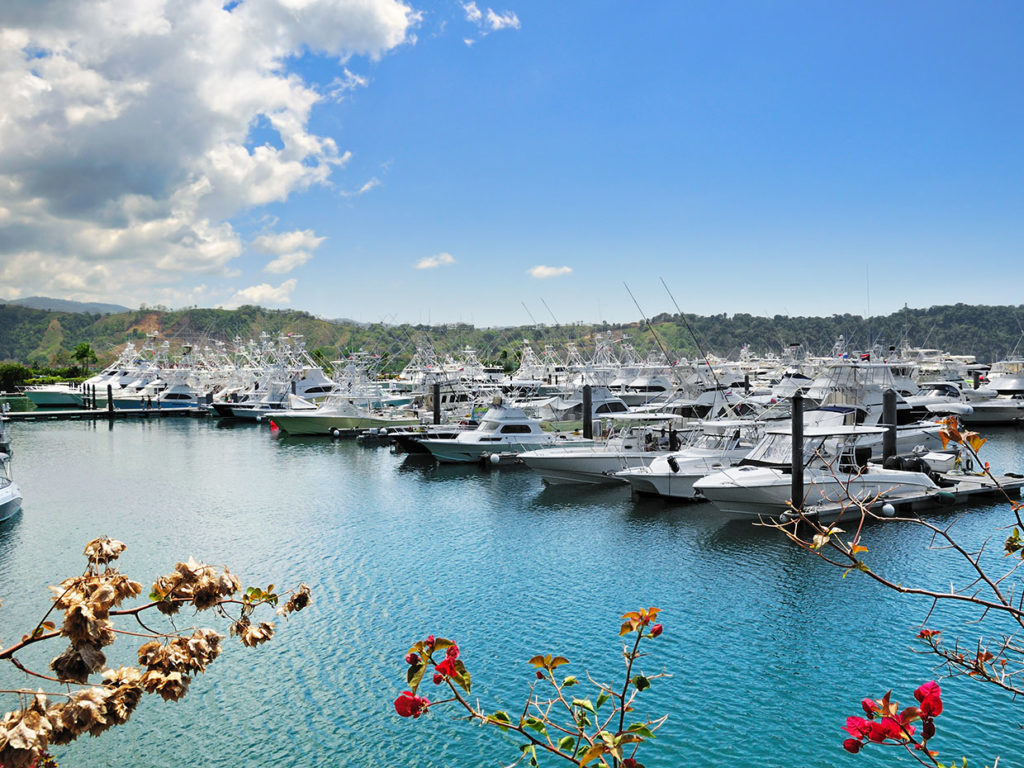We’d all love to be out on the water 365 days a year. But unless you live somewhere tropical, that’s not possible. Most captains around the world are forced to take a break during the off-season, and part of that includes storing your boat. Other charter operators have to store their boats between trips, too. In fact, this can be one of the most important aspects of making sure your business runs smoothly.

That’s why we decided to help you out. We’re here today to let you know all about the best ways to store your boat. Whether for a few months or just a few days, we’ve got you covered. We’ll take you through storage options, tips for maintaining your boat, and much more. So without further ado, let’s get started!
Where to Store Your Boat
Choosing how and where to store your boat is the first thing you need to decide on. Some smaller boats may be suitable for storing on a trailer, and even bigger ones if you have the space. But a lot of the time, you don’t want to lose time lugging your vessel to and from storage. Some captains keep their boat in the water, some in private storage, and some pay to have it taken care of. We’ll go through the pros and cons of these options below.
In the Water
We’ll start with the easiest option – keeping your boat in the water. This is often the preferred option for larger vessels, and for those captains who have a marina spot secured year-round. But it’s also convenient no matter what size boat you have. Why? Well, you won’t lose any time hauling your boat to and from the dock or storage facility. In fact, you can even use your boat to hang out even if you’re not going out fishing!

Despite this, there are obvious downsides to storing your boat in the water – especially if you live in an area that’s prone to extreme weather conditions. Exposure to rain, wind, and even UV lighting is harmful to your boat, meaning more maintenance when you get back up to full speed. Don’t forget, you’ll also have to clean up any algae, barnacles, and even bird droppings if you leave it out in the water.
Also, if you’re planning on leaving your boat untouched for a while, you’ll want to make sure the marina is secure, Even then, safety measures won’t be as tight as in storage facilities. But more on that later.
On a Slip Lift
Thankfully, to protect against some of the wildlife that can cling to your boat, slip lifts can be very convenient. These get your boat out of the water but are still in the marina in a convenient location to get back out when the time allows. Indeed, some marinas even have their own slip lifts for you to use. This means you can just rent them out and take advantage right away.

On the flip side, you’ll have to factor in the cost, no matter if you’re using your own or a marina’s slip lift. Be warned, they don’t come cheap. Installing one yourself can also take some work! You should also be aware that, in areas with high winds, slip lifts may not be the best solution for storing your boat. Read on to find out some more suitable options.
Outdoors (Off the Water)
As we mentioned earlier, many captains like to store their boats at home. Sure, if you have a large driveway, there’s nothing stopping you. But that’s not the only option, There are also open-air self-storage facilities, similar to parking lots for boats. Both options are solid, with you being able to keep an eye on the boat yourself at home, while someone else will do it in storage. You can also usually be able to get it back on the water when you please.

If you settle on either of these options, we suggest you take considerable effort to cover your boat. This protects against the weather conditions, as we’ve mentioned above, but also can help protect against burglars or wild animals such as rodents and raccoons that can make themselves at home in parking lots. Still, leaving your boat out in the open air will always carry some risk. And you’ll still spend some time and effort moving the boat to and from the water.
Indoors
The way to protect against all the issues mentioned above is to keep your boat indoors when you’re not fishing. Of course, if you have a garage big enough, there’s no reason you can’t keep it in there. Although we’re sure you might need to do some work to persuade the rest of the family! Otherwise, there are covered boat storages that can protect your boat from the elements and wildlife, too. But these come with a hefty price tag.

There are self-storage facilities and dry-stacked options all across the country, and both offer the same protection as a garage. While we don’t need to repeat that they aren’t the easiest to reach from the water, safety comes with a price. And there are other considerations, too.
Dry-stacked storage, for example, sometimes limits the number of times you can visit your boat or take it out of storage. It can also get busy if you’re putting it in and taking it out when everyone else has the same idea. That means you may have to wait to retrieve your boat. As for self-storage facilities, these are the most expensive of all the options above. And spaces are at a premium. If you find one, great, but they may not always be available.
Tips for Storing Your Boat
Now you have an idea of where you’re going to store your boat, let’s get down to some of the finer details that will help keep your boat safe when you’re not fishing. We’ll start with some universal tips for pretty much every time you take your boat out of the water. If you’re interested in a comprehensive guide to boat maintenance, check out this article.

- Rinse your boat. This is especially important for saltwater vessels. Wash it down with freshwater and a light dash of soap. It can be just as important on freshwater boats to get rid of algae, barnacles, or any dirt, too.
- Inspect the vessel. The last thing you want when you get back out on the water is to find a dangerous fault with the boat. You should see to any small cracks right away. Check for damage on the body of the boat, along with ropes, decks, hooks, and wires to make sure nothing is leaking or damaged. And don’t forget the engine!
- Flush the engine. Speaking of your motor, you’ll want to make sure it’s clean when putting the boat away. Flushing it with a chemical solution to get rid of any sludge or gunk is a must. Drain the chemicals back out before replacing the oil, and siphon out any gas if you’re likely to be out of action for a while.
- Cover the boat. We’ve mentioned uncovered storage solutions, but there’s no need for your boat to be completely naked. Even a light cover to protect against UV rays and bird droppings is vital, no matter how long you’ll have the boat out of the water.
In addition to all of the above, there’s more to consider when storing your boat for a longer period. This is especially true during winter or any time of year when the weather conditions can get rough.

- Dry your boat. After giving your boat a wash, you’ll also want to thoroughly dry it. This protects against dampness, in case your storage isn’t dry enough. (We do suggest picking a dry spot, much as for fishing gear). This is also important to protect against ice damage too if you’re living in colder climates.
- Use antifreeze through your water systems. If your boat is likely to be exposed to colder conditions, run some antifreeze through your water systems. This will protect them from freezing and further damaging your boat.
- Charge and test your battery regularly. This is vital if you’re likely to be out of the water for a considerable period of time. Take it out of the motor and charge it early on. Then, we suggest testing it at least once a month to make sure everything is still in order.
One other thing is a must if you’re keeping your boat on a trailer, and that’s to make sure your tires are fully pumped. The last thing you want is to have to try and get some air into those tires when the boat is already on top!
Storing Your Boat: Because She’s Worth It!

This concludes our guide on how best to store your boat. Of course, there’s a whole load of other factors to take into account, depending on your local conditions. And, as we’ve said plenty of times above, how long you want to keep the boat inactive. But with these general tips, you’re already on the right track to keeping your boat healthy. That means a better fishing performance for more time. She really is worth the effort!
And now over to you. What are your best tips on how to store your boat? Anything you’d like to share? We’d love to hear from you in the comments below!